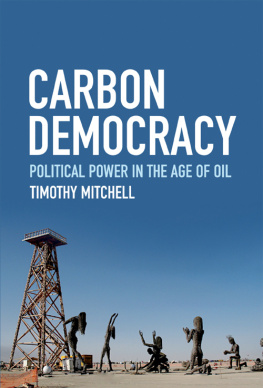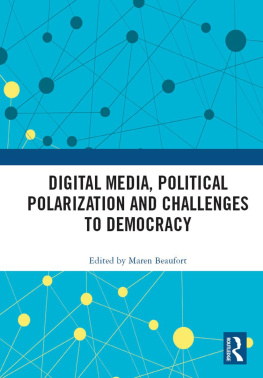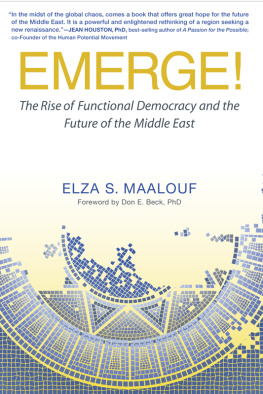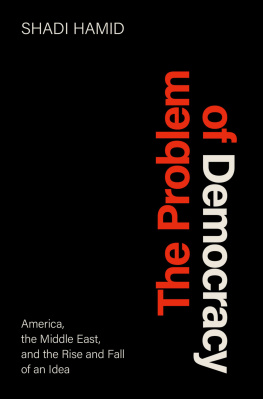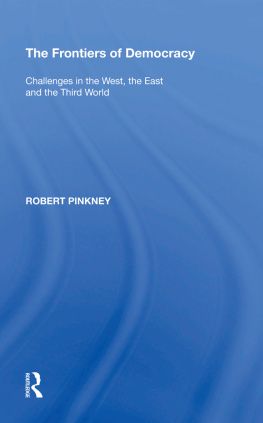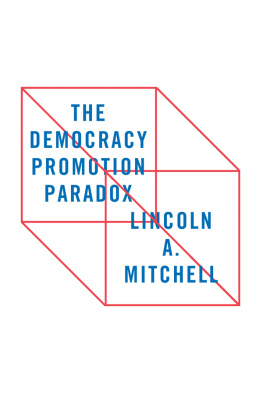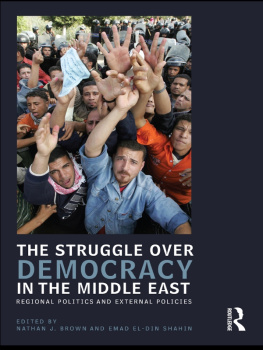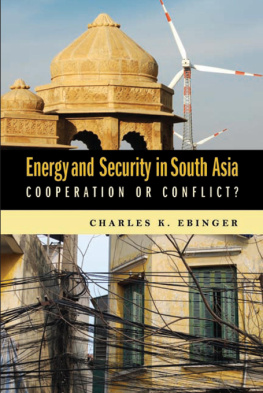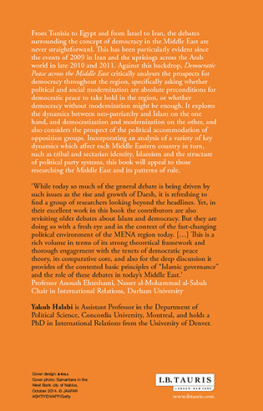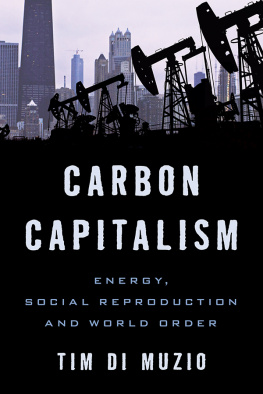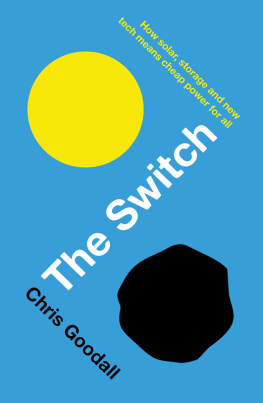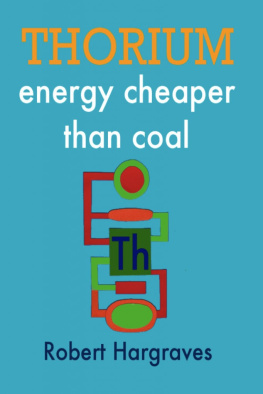Carbon Democracy
Carbon Democracy
POLITICAL POWER IN THE AGE OF OIL
Timothy Mitchell
First published by Verso 2011
Timothy Mitchell 2011
All rights reserved
The moral rights of the author have been asserted
1 3 5 7 9 10 8 6 4 2
Verso
UK: 6 Meard Street, London W1F 0EG
US: 20 Jay Street, Suite 1010, Brooklyn, NY 11201
www.versobooks.com
Verso is the imprint of New Left Books
e-Book ISBN-13: 978-1-84467-896-9
British Library Cataloguing in Publication Data
A catalogue record for this book is available from the British Library
Library of Congress Cataloging-in-Publication Data
A catalog record for this book is available from the Library of Congress
Typeset in Minion Pro by Hewer UK Ltd, Edinburgh
Printed in the US by Maple Vail
To Adie and JJ
Contents
Acknowledgements
I have benefited from the comments and criticisms of participants in numerous seminars and lectures where parts of this work were presented, and from more extended discussions with Andrew Barry, Michel Callon, Geoff Eley, Mahmood Mamdani and Robert Vitalis. A number of former students shared with me their work on related topics, and in several cases contributed their assistance to my own research; these include Katayoun Shafiee, Munir Fakher Eldin, Canay zden, Firat Bozali, Ryan Weber and Sam Rubin.
Certain sections of the book draw on material I have published elsewhere. Parts of was published as McJihad: Islam in the US Global Order, Social Text 20: 4, 2002: 118.
Three people made a special contribution to the writing of the book. Adrian and Justine Mitchell provided a critical ear and every kind of encouragement to finish; Lila Abu-Lughod shared her irreplaceable wisdom, insight, patience and care. I cannot thank them enough.
Introduction
Fossil fuels helped create both the possibility of modern democracy and its limits. To understand the limits, this book begins by exploring what made the emergence of a certain kind of democratic politics possible, the kind I call carbon democracy. Before turning to the past, however, let me explain some of the contemporary limits I have in mind.
In the wake of the US invasion of Iraq in 2003, one of those limits was widely discussed. A distinctive feature of the Middle East, it has often been said, is its lack of democracy. For many who write about the region, this lack has something to do with oil. Countries that depend upon petroleum resources for a large part of their earnings from exports tend to be less democratic. The wave of uprisings that spread across the Arab world in 2011 appeared to confirm this relationship between large oil earnings and the difficulty of mounting claims to a more democratic and egalitarian life. By and large, the less oil a country produced, and the faster its production was declining, the more readily the struggles for democracy unfolded. Tunisia and Egypt, where the uprisings began, and Yemen, Bahrain and Syria, where they quickly spread, were among the regions smallest oil producers, and in all of them the production of oil was declining. Of the eight large producers in the Middle East, only in Libya, the smallest producer among them (and where production had also suffered a recent decline), did a similar political struggle gain momentum, although the conflict in the Libyan case was the quickest to collapse into violence and foreign intervention.
Most of those who write about the question of the oil curse, as the problem is sometimes called, have little to say about the nature of oil and how it is produced, distributed and used. They discuss not the oil but the oil money the income that accrues after the petroleum is converted into government revenue and private wealth. The reasons they offer for the anti-democratic properties
Ignoring the apparatus of oil production reflects an underlying conception of democracy. This is the conception shared by an American expert on democracy sent to southern Iraq, nine months after the US invasion of 2003, to discuss capacity building with the members of a provincial council: Welcome to your new democracy, he said, as he began displaying PowerPoint slides of the administrative structure the Americans had designed. I have met you before. I have met you in Cambodia. I have met you in Russia. I have met you in Nigeria. At which point, we are told, two members of the council walked out. For an expert on democracy, democratic politics is fundamentally the same everywhere. It consists of a set of procedures and political forms that are to be reproduced in every successful instance of democratisation, in one variant or another, as though democracy occurs only as a carbon copy of itself. Democracy is based on a model, an original idea, that can be copied from one place to the next. If it fails, as it seems to in many oil states, the reason must be that some part of the model is missing or malfunctioning.
An idea is something that is somehow the same in different places that can be repeated from one context to another, freeing itself from local histories, circumstances, and material arrangements, becoming abstract, a concept. An expert in democracy has to make democracy into an abstraction, something that moves easily from place to place, so that he can carry it in his suitcase, or his PowerPoint presentation, from Russia to Cambodia, from Nigeria to Iraq, showing people how it works.
Once one has made democracy into something that moves around the world as an idea, in order to move with it, one is committed to a particular way of explaining how the idea works, how people become democratic. If democracy is an idea, then countries become democratic by the idea getting into peoples heads. The problem of democracy becomes a question of how to manufacture a new model of the citizen, one whose mind is committed to the idea of democracy.
A central theme in discussions of the contemporary Middle East in the United States has been the question of how to manufacture new kinds of citizen. In debates about the war in Iraq, economic reform, the future of Palestine, political Islam, obstacles to democratisation, the spread of anti-Americanism, and the 2011 uprisings, one finds a recurrent interest in the question of how to produce a new kind of political agent. How can one create subjects of power who are adequately equipped to impose limits on authority? How does one form a citizenry that refuses to authorise authoritarianism? What kinds of education, enlightenment, training or experience are required to engender forms of economy based on agents who act according to their rational self-interest rather than corruption or cronyism? What produces forms of politics based on mutual trust and respect for opponents rather than suspicion and repression? In short, these debates ask, how can people learn to recognise themselves and respond as subjects of new forms of power? What forms of power, conversely, can engineer the liberal or democratic political subject?
There has been plenty of criticism of the way these questions have been posed and answered, especially in the debates about democratisation, often faulting them for ignoring the so-called larger forces at work. American writings on the problem of democracy in the Middle East typically have little to say about capitalist globalisation and the work being done to turn people into the docile workers and willing consumers required to solve economic crises in the West; about the forces of empire for whom democratisation schemes are a minor, diplomatic part of wider efforts to shore up a weakening hegemony; and about the tools of violence and repression that occupying powers and military regimes deploy. Such criticisms, however, overlook what is interesting in these debates: the notion that democracy is an engineering project, concerned with the manufacture of new political subjects and with subjecting people to new ways of being governed.
Next page
